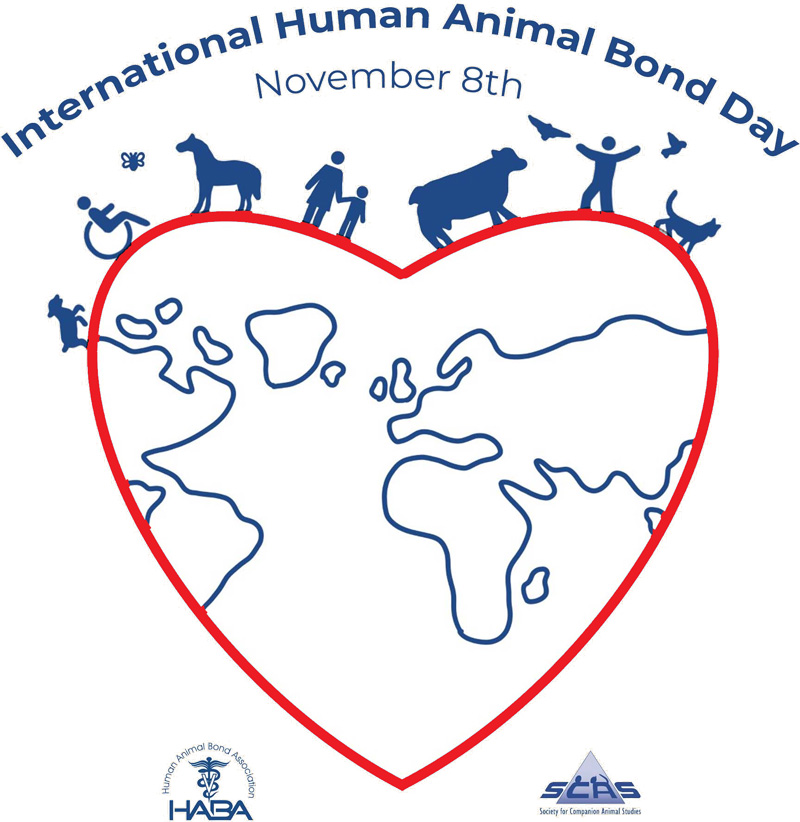
The International HAB Day is a joint effort between the Human Animal Bond Association in the United States and the Society of Companion Animal Studies in the United Kingdom.
The Human Animal Bond Association (HABA) is a group of like-minded people who care for other animals. HABA’s mission is to advocate, celebrate and educate about our connection with the natural world including our companion animals and why that’s important to all of us.
Listen to Dr Elizabeth Ormerod talk about the human-animal bond in her introduction to the SCAS2022 conference:
‘Pet in Housing’ continues to be a top priority for SCAS and was the focus of this year’s annual conference, Pet Friendly Housing: How can we keep people and pets together? (A recording can be purchased by contacting Alison at info@scas.org.uk)
The human-animal bond is important to many humans and animals, but imagine having to choose between keeping your beloved pet and a roof over your head? Would you sleep on the streets with your dog rather than relinquish them to a shelter? Fewer than 7% of homeless persons say they would relinquish their pet in exchange for housing, yet only 10% of UK hostel projects currently accept pets. The prospect of being separated from their beloved companion can become too much to bear, and too many vulnerable individuals are lost to suicide. Dr. Elizabeth Ormerod warns that those in the veterinary profession need to be aware that a request for euthanasia of a healthy animal could be a prerequisite to suicide. Staff at animal shelters could also provide a lifeline to those who appear reluctant to relinquish their pet by suggesting alternatives or having contact information on hand for relevant services.
Those needing to escape from an abusive domestic situation are often afraid of leaving behind their pets. This fear is not unfounded and there is a strong link between violence towards spouses and children and animal abuse. Furthermore, the threat of harm to pets is often used by perpetrators of domestic abuse as a form of control. The Links Group works with partners across the UK to ensure people and their pets are safe.
Adjusting to a care home can be a traumatic experience for many people. This will only be exacerbated by the anguish of parting with a companion animal who has been a constant companion for many years. Furthermore, pets help reduce the risk of suicide amongst older persons. The animal also suffers when relinquished to a shelter, and especially older cats are less likely to be adopted. Permitting pets does present potential risks to residents, staff, and companion animals, which may lead to care homes enacting a blanket ‘no pets’ rule. However, many of these risks are manageable if assessed on a case-by-case basis.
To this end, a SCAS funded project brought together a team of human and animal experts, academics, researchers, community consultants and veterinarians to develop the Companion-Animal Multi-Species Risk Management Tool (CAMSRMT). This freely available tool is aimed at supporting the safe inclusion of personal pets (that is, those that people have pre-residential relationships with) in communal residential aged care. The framework enables users to assess the risks that both humans and animals may encounter in these settings and implement methods to reduce them to acceptable levels.
Since it was first established in 1979, the Society of Companion Animal Studies (SCAS) has campaigned to raise awareness about the unfairness and the many harmful consequences of ‘no pet’ clauses in tenancy agreements for rented homes. This includes supporting academic studies and conferences, partnering with advocacy groups and charities campaigning for policy change, and engaging with various stakeholders.
